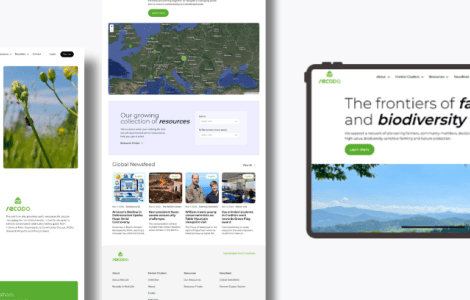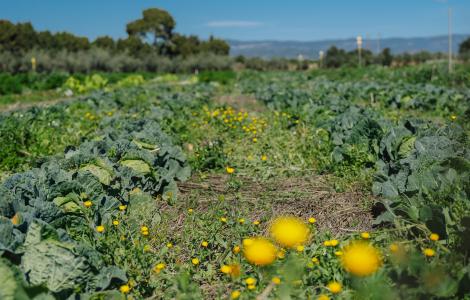CREAF researcher Adrià Descals boosts the study of savanna and tropical forest fires thanks to a Leonardo Grant
CREAF postdoctoral researcher Adrià Descals Ferrando will give a major boost to his study on the link between savanna fires and tropical forests, thanks to a Leonardo 2023 Grant for Researchers and Cultural Creators awarded by the BBVA Foundation. Descals has received this distinction in the Environmental and Earth Sciences section, for his project 'Impact of fire emissions on tropical forest productivity: examining the role of savanna nutrient pools and deforestation fires'. The results of the scientific project will improve global warming projections and adjust estimates of the rainforest's ability to sequester atmospheric carbon. In the words of the researcher himself, "the Leonardo grant is an opportunity both to develop a project around your own research topic and to get funding at an intermediate stage of your scientific career".
The results of the project will improve projections of global warming and adjust estimates of the rainforest's ability to sequester atmospheric carbon.
The project aims to demonstrate that nutrients emitted in savanna fires are transported long distances by trade winds and deposited in rainforests, which may influence the photosynthetic capacity of rainforests. To demonstrate this, it is necessary to estimate fire emissions, the transport of particles through the atmosphere and to determine whether they explain variations in rainforest growth. This will be done using satellite imagery and cloud computing to generate monitoring maps of savanna fires and photosynthetic activity in tropical rainforests.

"The Leonardo Grant is an opportunity both to develop a project around my own research topic, and to obtain funding at an intermediate stage of my scientific career".
ADRIÀ DESCALS, postdoctoral researcher at CREAF.
One of the special features of the Leonardo Grant is that it aims to help specialists in science and cultural creation to develop and manage a personal project with complete flexibility, at a decisive moment in their careers. The evaluation committees of the 10th edition of the scholarships have selected 58 highly innovative projects from a total of 1,116 proposals received which, apart from environmental and earth sciences, include the fields of knowledge basic sciences, biology and biomedicine, engineering, computer and data sciences, social sciences, humanities, plastic arts, music and opera, as well as literary creation and performing arts. Innovative projects have been selected by the evaluation committees of the 10th edition of the scholarships.
Innovative spirit
The use of light to develop clean fuels, blocking communication between tumour cells to prevent metastasis in breast cancer, predicting damage to urban coastlines caused by high waves linked to climate change, an archaeological expedition to a little-known kingdom in Africa and an opera on García Lorca's 'Poet in New York' are some of the projects selected for the 2023 edition.
The Leonardo Grants have a multidisciplinary approach, highlighting the environment with engineering, biology with physics and new technologies with biomedicine, as well as pure artistic creation.
The target group of the Leonardo Grants reflects the creative and innovative spirit of a universal exponent of creation and science such as Leonardo da Vinci (1452-1519): the passion for knowledge, the openness and continuous exploration of new fields and objects, the interaction between theoretical and observational or experimental work, as well as the dialogue and feedback between the natural and life sciences, technology, humanities and the arts. The multidisciplinary approach of the programme is also evident in the projects, which bring together the environment and engineering, biology and physics, new technologies and biomedicine, as well as pure artistic creation.
The programme is celebrating a decade in which it has made possible the projects of 602 scientific specialists and creators, who today make up the Leonardo Network, a community of excellence.







